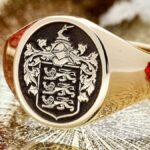Are you a tenant in Delaware? Navigating lease agreements can be daunting, but fear not! This article will guide you through the process.
We’ll explore essential information on Delaware lease agreements, including required disclosures, fair housing protections, rent and fees, and security deposits.
By the end, you’ll have a comprehensive understanding of Delaware lease agreements and be equipped to navigate them successfully.
Required Disclosures and Fair Housing Protections
When entering into a lease agreement in Delaware, it’s important for you to be aware of the required disclosures and fair housing protections. Even when you’re renting in another state, it’s crucial that you are informed on the laws your state puts in place to protect you as a renter.
In a Delaware residential lease agreement, certain disclosures must be made, including information about lead-based paint, the landlord/agent’s identification, a copy of the rental agreement, a summary of landlord-tenant laws, and the location of the security deposit. These disclosures must be clearly disclosed and written in your rental agreement.
Additionally, fair housing protections in Delaware prohibit discrimination based on race, color, national origin, religion, and sex. These protections ensure that all tenants have equal access to housing opportunities and are treated fairly. Landlords and tenants must be informed on these protections to ensure they are treating and being treated fairly in the rental space.
Rent and Fees
To ensure a transparent rental process, it’s important for you to understand the details regarding rent and fees in your Delaware lease agreement.
First, make sure you know the rent due date and whether it’s payable monthly, weekly, or in another frequency. Usually, rent will be due on the first of the month. However, since Delaware law does not mandate a specific rent due date, landlords should put your rental due date in the residential lease agreement. It’s also a good idea for landlords to verbally explain the due date to tenants upon signing. As a tenant, if your landlord does not explain the due date or have it written in your lease, ask them to include it in the agreement and disclose this information to you.
Additionally, be aware of any application fees that may be required when applying for the rental property.
It’s also worth checking whether the property is subject to rent control, as this can affect the amount your rent can be increased.
Furthermore, familiarize yourself with the late fee limit and any grace period that may be granted before late fees are assessed.
Security Deposits
Understand the requirements for security deposits in your residential lease agreement Delaware.
Delaware law doesn’t set a specific limit on the amount a landlord can collect as a security deposit. However, it’s common for landlords to ask for one month’s rent as a security deposit. Generally, as long as the security deposit could be deemed appropriate by a judge, any disputes arising from security deposit amounts will rule in your favor.
The security deposit must be returned to the tenant within 20 days of the lease ending, minus any deductions for unpaid rent or damages beyond normal wear and tear. It’s important to note that landlords are required to provide a written itemized statement explaining any deductions from the security deposit.
Additionally, the security deposit must be held in a separate account in a Delaware financial institution.
Delaware Landlord Tenant Laws
When navigating Delaware lease agreements, you should familiarize yourself with the Delaware Landlord Tenant Laws. These laws provide a legal framework for landlord-tenant relationships and govern the rights and responsibilities of both parties.
They regulate rental agreements and lease terms, addressing important aspects such as security deposits and rent payment. The Delaware Landlord Tenant Laws also outline the eviction process and tenant rights, ensuring fair treatment and protection for both landlords and tenants.
Conclusion
In conclusion, understanding Delaware lease agreements is essential for tenants in order to navigate their rental agreements with confidence. By familiarizing yourself with the required disclosures, fair housing protections, rent and fees, and security deposit regulations, you can ensure a smooth and successful leasing experience.
Remember to always consult Delaware Landlord Tenant Laws for specific information and guidelines. With this knowledge, you’re well-prepared to handle any lease agreement in Delaware.











